SERIES 4, EPISODE 2
Well, of course, bream were the species advertised, but they were a complete no-show, to Bob’s relief. But first, let’s talk about estate lakes, the waters where I grew up on, both in Cheshire, but more especially in Norfolk from the late Fifties. Holkham. Blickling. Felbrigg. Gunton. Bayfield. Letheringsett. Wolterton. Barningham. Melton Constable. And that’s barely the half of them! They were constructed in the main between 1750 and 1800, with a good number of date variations and, in the case of Blickling and especially Holkham, involved excavations over a decade and the labour of thousands of men. Burghley is, of course, built on the same scale and is equally huge at 20-plus acres. Moreover, Burghley appears to have survived with fish populations rather more intact than most of the Norfolk lakes mentioned. Some Norfolk waters were diminished by pollutions, but most had their small fish stocks annihilated by cormorants and their large fish decimated by otters. The crash of these lakes between, say, 1995 and 2020, has been devastating. Shallow waters offer little protection from predators and Burghley has been lucky to survive, to a degree intact.
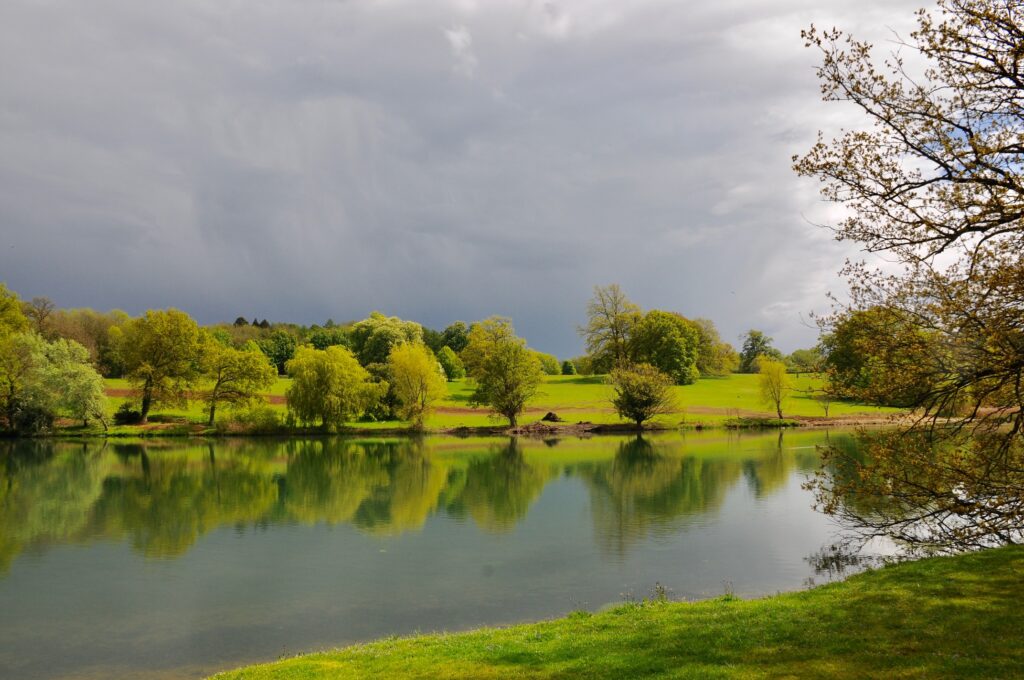

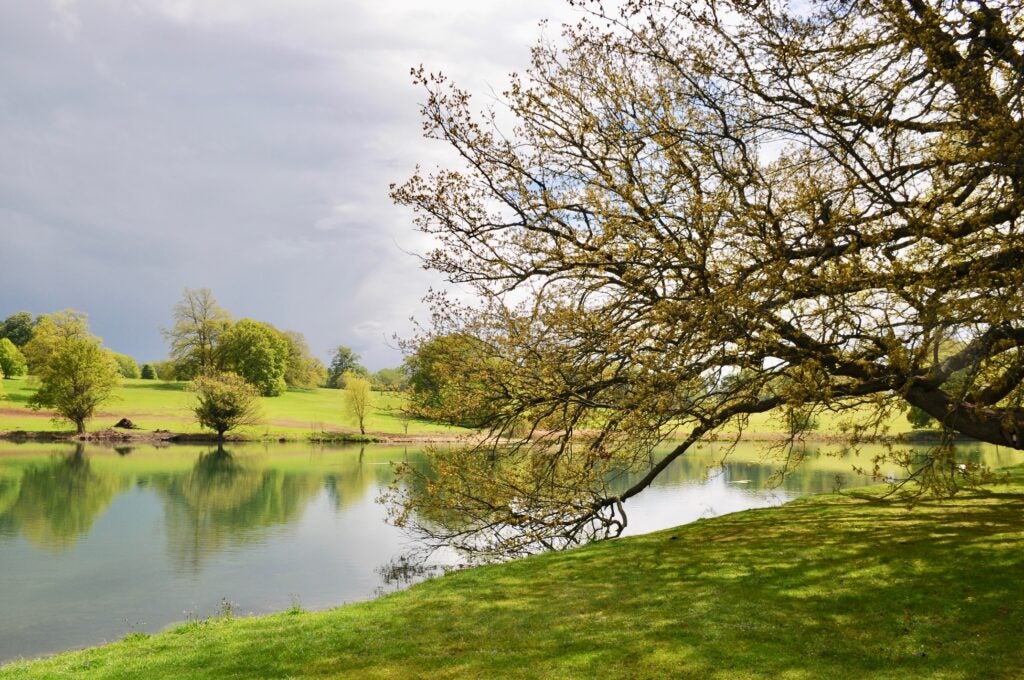

All estate lakes, in my experience are (or were) monumentally beautiful. The 18th century must have been a good time to be alive… if you were an angler, rich, and escaped the plethora of diseases that we took for granted ’till mid-last century. Burghley, as the film showed, remains a paradise on earth, thanks to centuries of careful care and stewardship. Before moving on, can I say that nowhere have we been received with more generosity than at Burghley? It was the warmth of those who live and work there that made the episode even more special than the park and those stunning tench.
Let’s consider those tench? They are special. They are exceptionally (I’d actually say uniquely) deep for their length. In fact, some I unhooked reminded me more of leather carp than tench, such was their bulk. I am not confusing build and bone structure with spawn, by the way. There was evidence of this in some fish, but it was minimal. Why was this? Genetics? Possibly, though I don’t know about these things in a scientific way. I’d guess that these fish were stocked many decades ago and left to develop in their own way, with little disturbance. In addition, the lake is supremely rich with seemingly superb water quality. It heaved with daphnia, even in the early part of the spring… something that made me worry about the fishing.
In fact, picking up on that last point, I arrived at the lake on Saturday and, along with the brilliant gardener there, Stephen (who was a rock throughout) I began to bait two swims. I baited all day Sunday too, and then all day Monday, whilst we were filming the general views and drone shots. After two and a half days of piling bait in, I never saw a bubble or a fish roll. Stephen and I could have been throwing bait around the park as far as any fish were concerned. It was therefore a colossal relief when the first tench appeared after only 20 or 30 minutes of fishing.
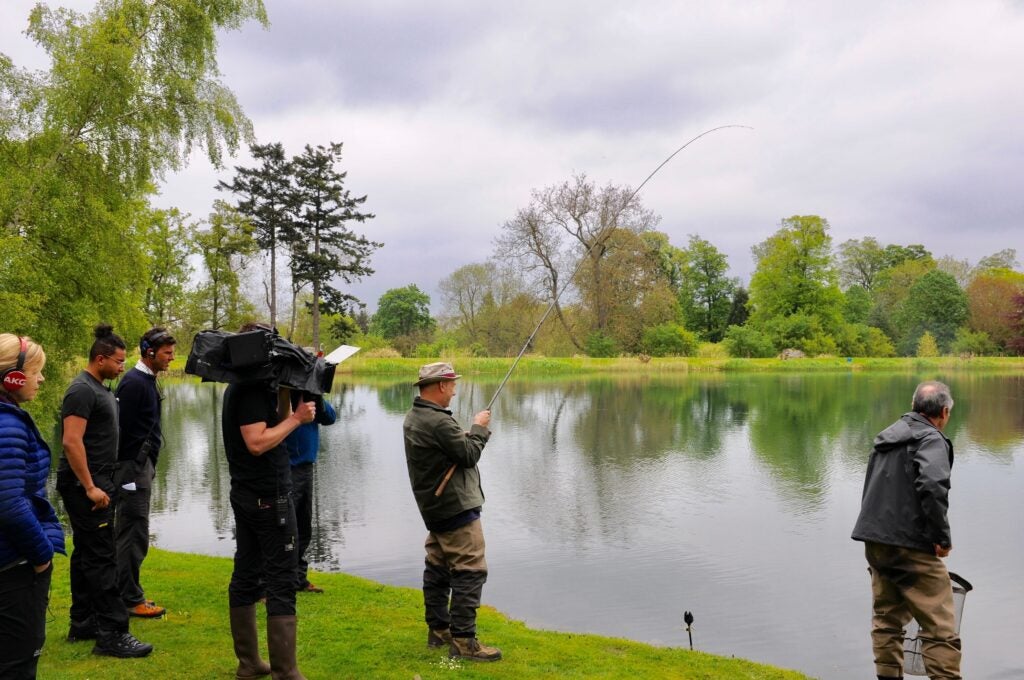

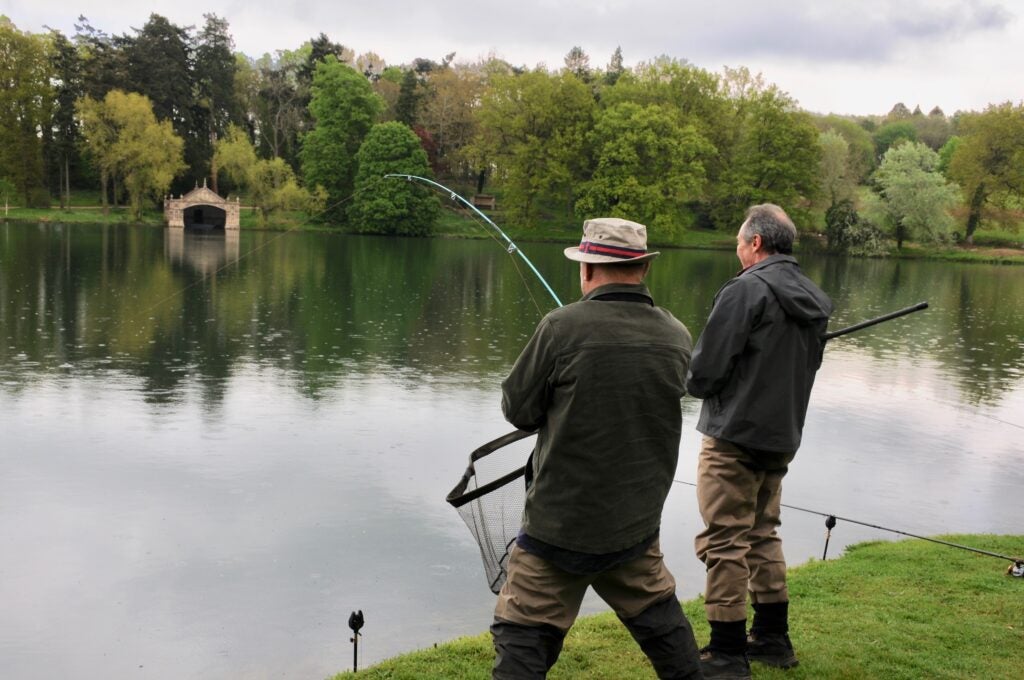

A word on the fishing. The prebait consisted of Vitalin, corn and boilies. During the filming we basically used two feeder rods and two float rods, all set up with boilies on the hook. The Boys prefer float fishing, and happily this tack proved by far the most successful. We fished Andrew Field’s wind beaters at twenty yards (less in the case of Bob’s blue rod) and bites were unmissable. Once again, using barely any shot on the line and a hair-rigged boilie as an anchor proved to be a top approach.
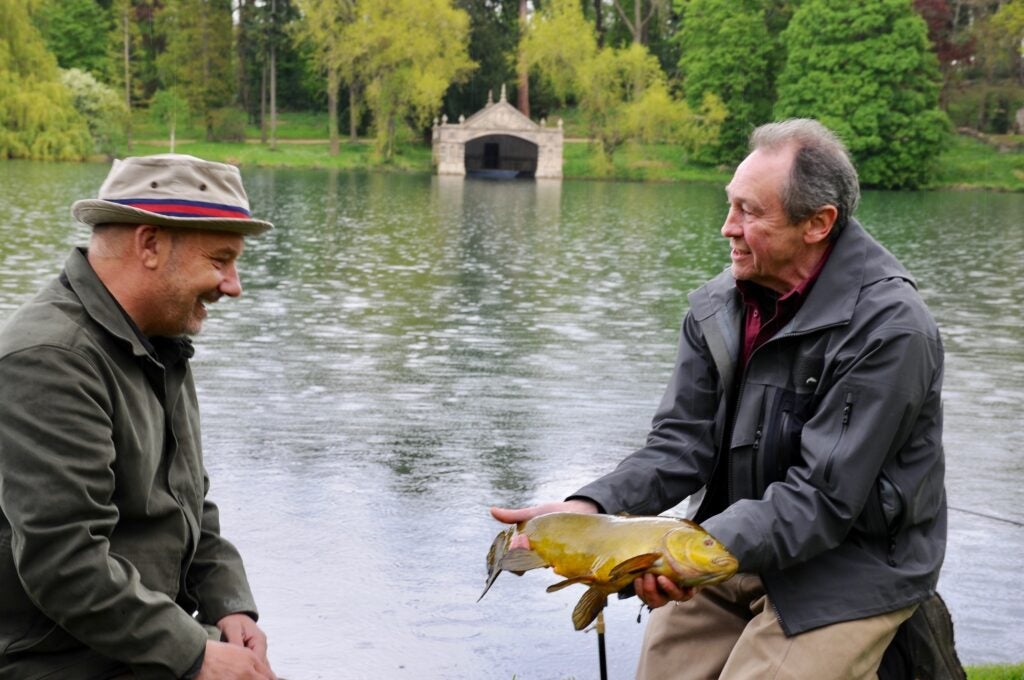

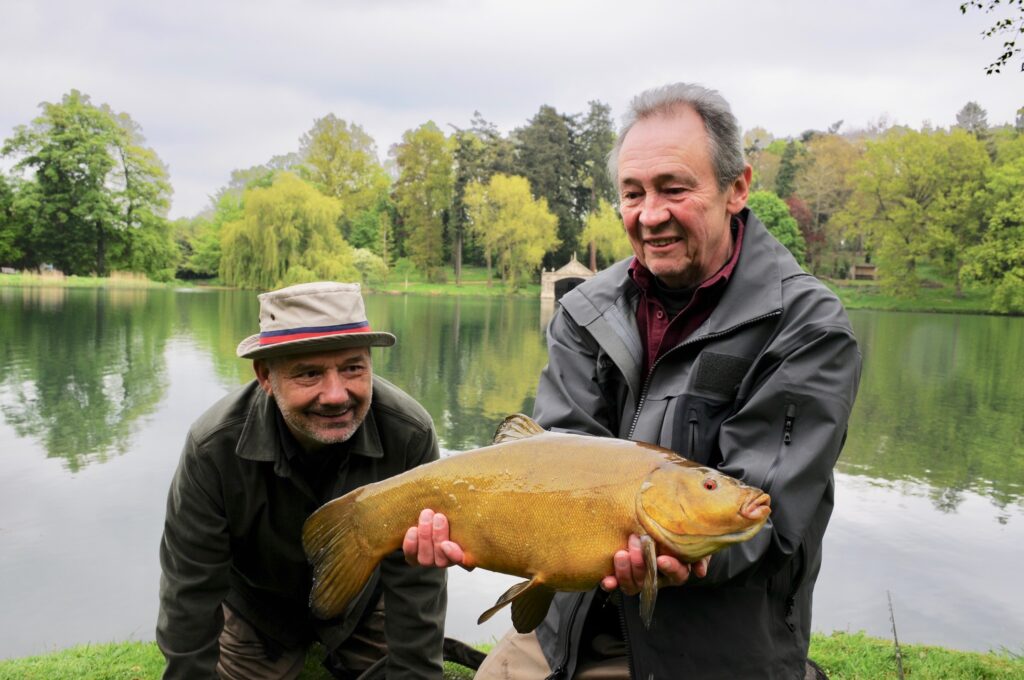

The pike? Paul loves his fly fishing, and it did appear the lake has a healthy population of jacks, hence the boat sequence… which to everyone’s amazement Bob handled with aplomb. However, there was a back story to this. On Monday, when reeling in a Spomb, I was followed by an otter that turned out at my feet to be an immense, almost coal-black pike. I have seen some BIG pike in my time, and this was right up there. It appeared once more, when it followed in an eight pound tench and drifted around the area for ten minutes after, just exuding menace. No surprise really. There is no angling pressure and I’m sure a tench every month or so allows a good pike to grow enormous.
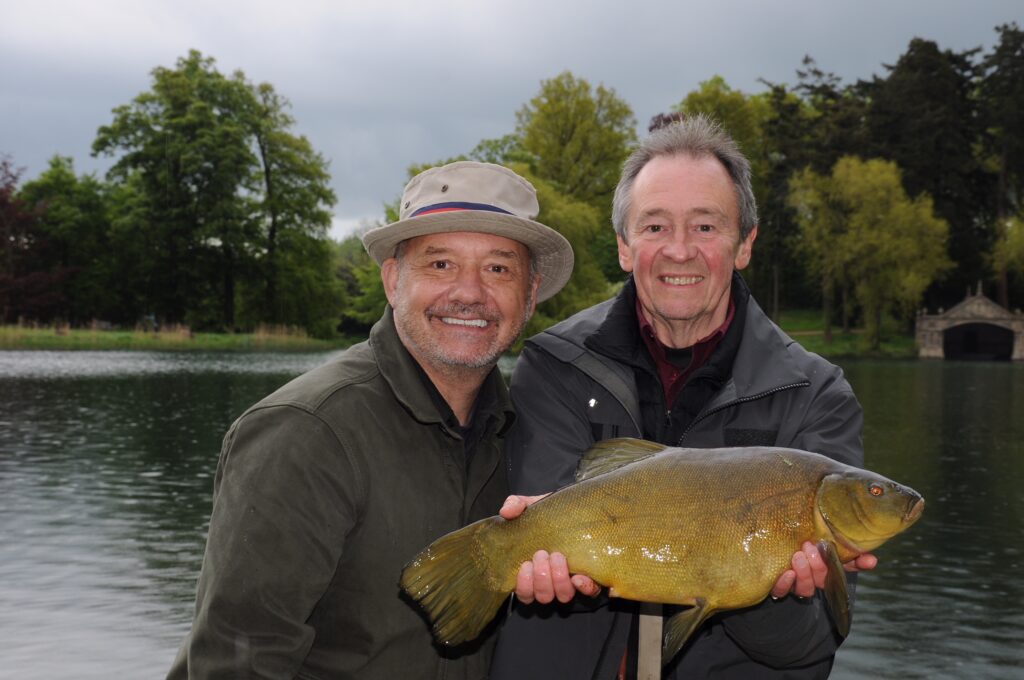

On a last, more sombre note, the Boys talked about parents and losing them. This struck a chord with me, as so many of their more serious topics do. My parents died when I was in my twenties, and though I thought about them every day then, their memory burns far brighter today, not that far short of half a century later. Perhaps as you yourself age, in an inexplicable way, their influence grows? That is history for you. At Burghley, it did not necessarily seem that the past really is a foreign country.













